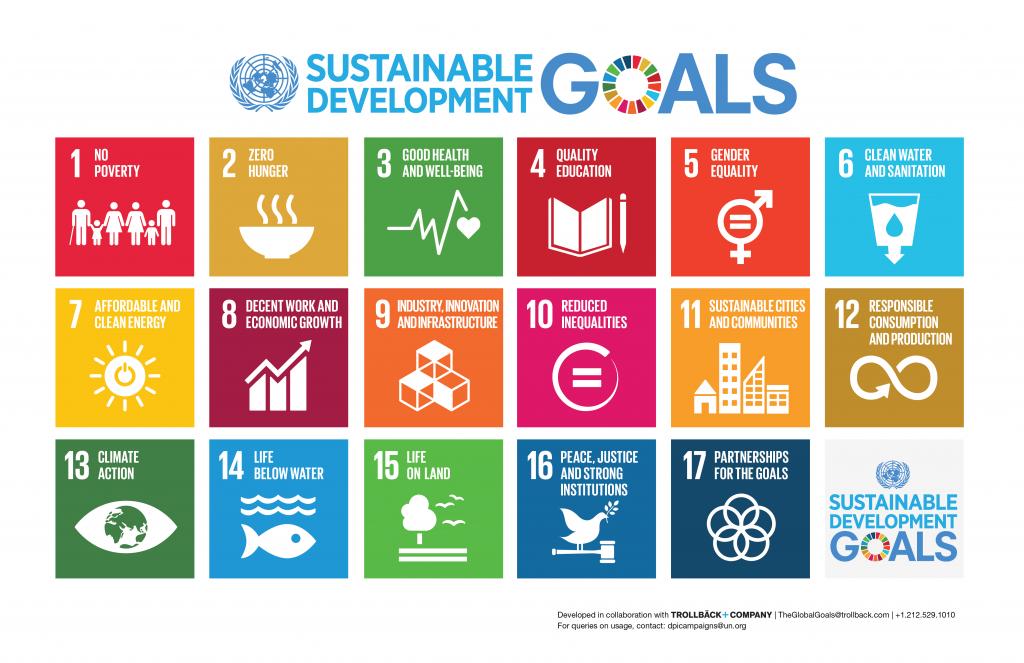Social Media and the Web 2.0 are Key Tools for the SDGs!

As the new Sustainable Development Goals (SDGs) were being discussed and adopted by the United Nations General Assembly in September 2015, participants of UNITAR’s on-going e-Learning course on social media and web 2.0 tools for development – Innovative Collaboration for Development (ICfD) – were engaging in stirring debates on the role of these innovative tools to achieve the SDGs.
Participants, who are development professionals, gave thoughtful and creative answers to the question:
How can social media and technology play a role in sustainable developmentand the new post-2015 agenda?
One participant believed that these tools can be used to spread the word about the SDGs as well as human rights worldwide in order to empower people with the knowledge necessary to make change possible. She argued that “most of us are in an environment where we are constantly being reminded of these SGD's through our organization, our work or conversations we have, but for the rest of the world the first touch point they might have with the 17 Global Goals is through Social Media. People cannot fight for their rights, if they do not know about them. So let's tell everyone!”
![]() Another participant stresses the importance of ICTs and their potential to help achieve the SDGs and make the world a better place: “Indeed in the area of ICTs (that would fall under SDG 9,) their incredible potential to facilitate the achievement of the other SDGs is undeniable and should have great importance placed on it. The ubiquitous access that ICTs allow means they as a whole can be considered as a modern utility service - like water, electricity etc. Achieve this SDG and we will then be able to leverage the incredible power of social media to change the world for the better.”
Another participant stresses the importance of ICTs and their potential to help achieve the SDGs and make the world a better place: “Indeed in the area of ICTs (that would fall under SDG 9,) their incredible potential to facilitate the achievement of the other SDGs is undeniable and should have great importance placed on it. The ubiquitous access that ICTs allow means they as a whole can be considered as a modern utility service - like water, electricity etc. Achieve this SDG and we will then be able to leverage the incredible power of social media to change the world for the better.”
Participants also raise the importance of having regulation on the use of ICTs and the Internet in order for it to be of public domain and allow world citizens to use these tools with freedom and be empowered to exercise their human rights, of course, within a safe environment. A participant explained that “without knowing what is out there people cannot make up their minds on what they want, what they value and want to achieve. Access to the Internet is key to this end, since it provides the greatest repository of information on Earth! It is because of this that governments limiting the use of Internet or social media violate major human rights.”
The course facilitator highlighted that “the emphasis is on getting people to leverage the power of social media in a variety of ways and forms and also encouraging the participation of governments to create a conducive atmosphere for the free use of social media with some regulations. The one-way dissemination and control of information is being broken down in favor of mass participation, which brings with it democratization and a sense of belonging and ownership. It engenders progress and commitment to development goals.”
The discussions that took place in the forums of the ICfD course while the SDGs were being adopted make it clear that social media and web 2.0 tools have a great potential to help achieve the new post-2015 development agenda. They are tools that should and must be used wisely for sustainable human development ends. That is why ICfD’s 9-weeks of training aim to empower development professional with the knowledge and hands-on know-how to achieve just that.
Related link
e-Learning course on social media and web 2.0 tools for development – Innovative Collaboration for Development (ICfD)

